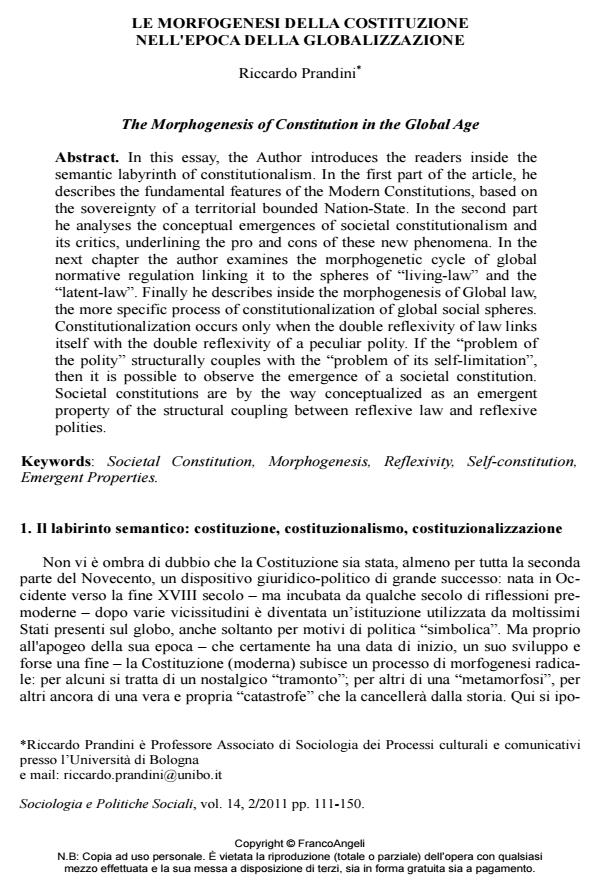The Morphogenesis of Constitution in the Global Age
Journal title SOCIOLOGIA E POLITICHE SOCIALI
Author/s Riccardo Prandini
Publishing Year 2011 Issue 2011/2
Language Italian Pages 40 P. 111-150 File size 673 KB
DOI 10.3280/SP2011-002005
DOI is like a bar code for intellectual property: to have more infomation
click here
Below, you can see the article first page
If you want to buy this article in PDF format, you can do it, following the instructions to buy download credits

FrancoAngeli is member of Publishers International Linking Association, Inc (PILA), a not-for-profit association which run the CrossRef service enabling links to and from online scholarly content.
In this essay, the Author introduces the readers inside the semantic labyrinth of constitutionalism. In the first part of the article, he describes the fundamental features of the Modern Constitutions, based on the sovereignty of a territorial bounded Nation-State. In the second part he analyses the conceptual emergences of societal constitutionalism and its critics, underlining the pro and cons of these new phenomena. In the next chapter the author examines the morphogenetic cycle of global normative regulation linking it to the spheres of "living-law" and the "latent-law". Finally he describes inside the morphogenesis of Global law, the more specific process of constitutionalization of global social spheres. Constitutionalization occurs only when the double reflexivity of law links itself with the double reflexivity of a peculiar polity. If the "problem of the polity" structurally couples with the "problem of its self-limitation", then it is possible to observe the emergence of a societal constitution. Societal constitutions are by the way conceptualized as an emergent property of the structural coupling between reflexive law and reflexive polities.
Keywords: Societal Constitution, Morphogenesis, Reflexivity, Self-constitution, Emergent Properties
Riccardo Prandini, Le morfogenesi della Costituzione nell’epoca della globalizzazione in "SOCIOLOGIA E POLITICHE SOCIALI" 2/2011, pp 111-150, DOI: 10.3280/SP2011-002005